| Type | Description | Contributor | Date |
|---|---|---|---|
| Post created | Pocketful Team | Sep-12-25 |
Read Next
- What is the 15*15*15 Rule of Mutual Fund Investing?
- Mutual Fund Factsheet: Definition And Importance
- XIRR Vs CAGR: Investment Return Metrics
- Arbitrage Mutual Funds – What are Arbitrage Funds India | Basics, Taxation & Benefits
- Hybrid Mutual Funds – Definition, Types and Taxation
- Top AMCs in India
- Active or Passive Mutual Funds: Which Is Better?
- Liquid Funds Vs Ultra Short Fund: Which One Should You Choose?
- Debt Mutual Funds: Meaning, Types and Features
- Equity Mutual Funds: Meaning, Types & Features
- What are Small Cap Mutual Funds? Definition, Advantages, and Risks Explained
- What is PSU Index? Performance, Comparison, Benefits, and Risks Explained
- Bandhan Long Duration Fund NFO: Objective, Benefits, Risks, and Suitability Explained
- Smart Beta Funds: Characteristics, Factors, Benefits, and Limitations
- The Rise of ESG Funds: Overview, Growth, Pros, Cons, and Suitability
- Mutual Funds vs Direct Investing: Differences, Pros, Cons, and Suitability
- A Comprehensive Guide on Mutual Fund Analysis: Quantitative and Qualitative Factors Explained
- NFO Alert: PGIM India Large & Mid Cap Fund
- ELSS Funds: 3 Years Lock-In Worth It?
- Regular vs Direct Mutual Funds: Make The Right Investment Decision
- Blog
- mutual funds
- best books on mutual funds
Best Books on Mutual Funds for Beginners in India
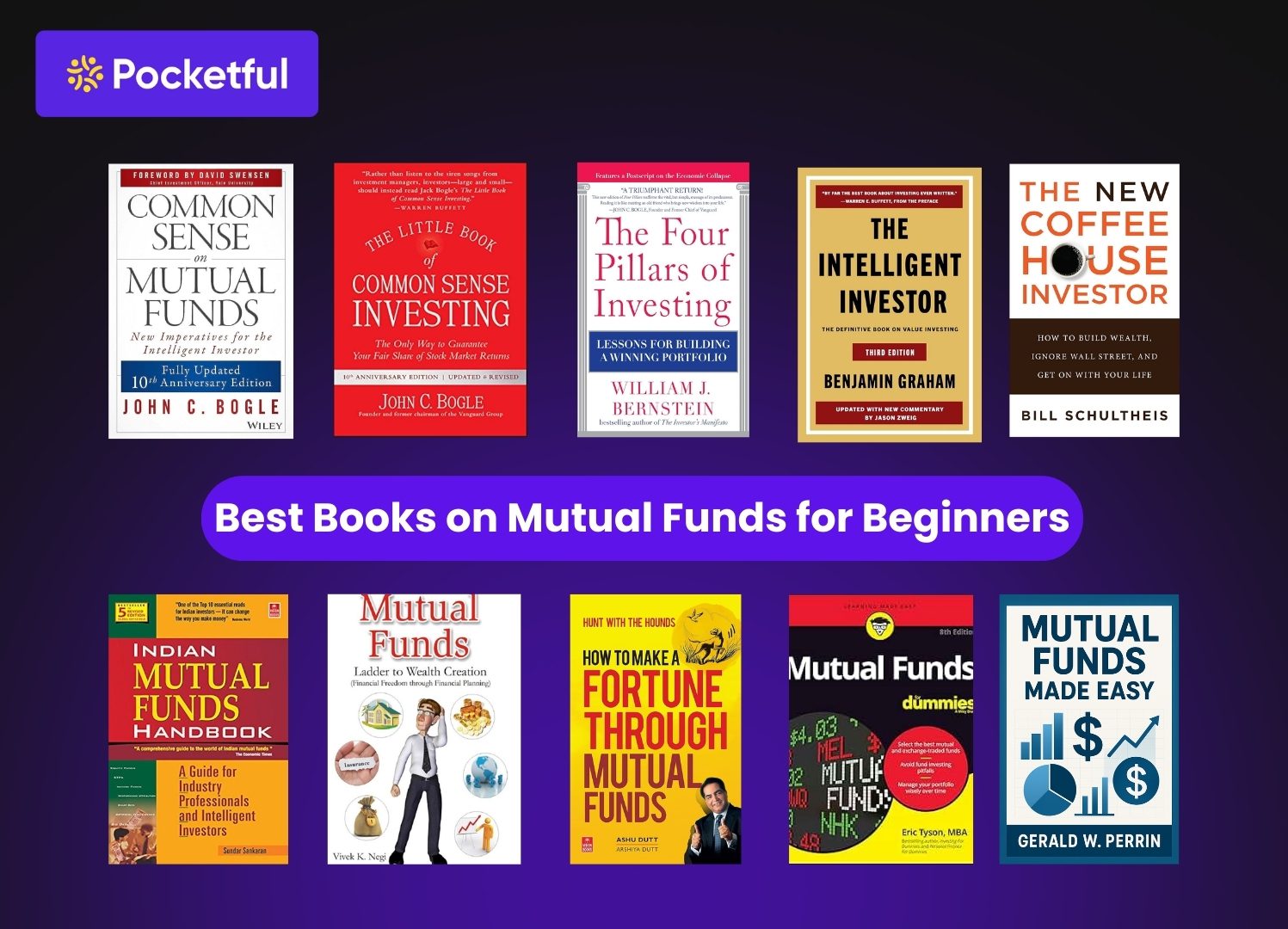
If you have ever thought about investing, chances are mutual funds came up as the first option. They are simple, beginner-friendly, and eliminate the need to analyse individual stocks. But here is the truth: just because mutual funds are easy to start with does not mean you should jump in without learning the basics.
The more you know, the better are your investment decisions. And while the internet is flooded with tips, reels, and suggestions, books give you a deeper understanding. They share decades of wisdom and proven lessons that short videos just cannot cover.
In this blog, we will tell you about 10 amazing books on mutual funds and investing. Some are classics, some are simple guides, and a few explore investor psychology, but all of them will change the way you invest in mutual funds.
Why Read Books on Mutual Funds?
We are living in the age of instant advice; scroll through Instagram or YouTube, and you will find endless investing hacks. They are fun, sometimes even useful. But they do not always prepare you for the challenges of investing, like staying calm during a market crash.
Books do that. They slow you down, give you perspective, and show you the bigger picture. Below are some of the reasons why they are worth your time.
- They build strong basics – You will understand terms like SIPs, NAVs, and diversification without getting confused by complicated market terms.
- They teach patience – Real wealth is built slowly through compounding, not by chasing quick gains.
- They give perspective – Many of these authors have seen decades of market ups and downs, and they share what actually works.
- They help with mindset – A key aspect of successful investing is managing your emotions. Books prepare you for that.
Read Also: 10 Best Personal Finance Books to Read
10 Best Books on Mutual Funds in India for Beginners
- Common Sense on Mutual Funds – John C. Bogle
- The Little Book of Common Sense Investing – John C. Bogle
- The Four Pillars of Investing – William J. Bernstein
- The Intelligent Investor – Benjamin Graham
- The Coffeehouse Investor – Bill Schultheis
- Indian Mutual Funds Handbook (5th Edition) – Sundar Sankaran
- Mutual Funds – Ladder to Wealth Creation – Vivek K Negi
- How to Make a Fortune Through Mutual Funds: Hunt with the Hounds – Ashu Dutt
- Mutual Funds For Dummies – Eric Tyson
- Mutual Funds Made Easy – Gerard W. Perritt
An overview of the top 10 mutual funds books in India is given below:
1. Common Sense on Mutual Funds – John C. Bogle
This is Bogle’s book, where he explains everything he believes about mutual funds. He makes a simple but powerful point: high costs and too much trading eat away at your returns. Any individual should stick to plain, low-cost index funds and hold them for the long term. If you are serious about investing, it is worth the time. Think of it as a masterclass from the man who changed investing forever.
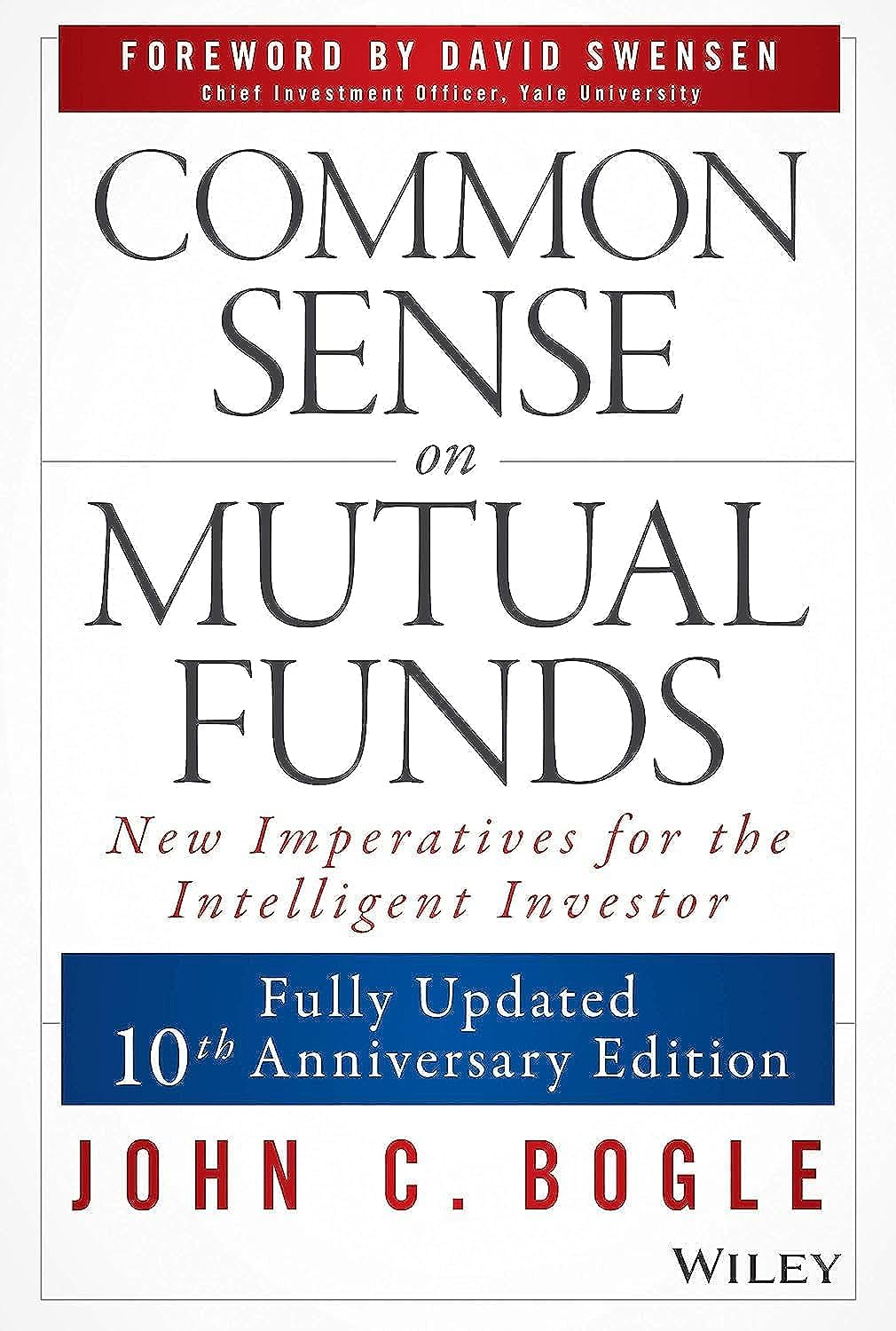
2. The Little Book of Common Sense Investing – John C. Bogle
This is the pocket guide where Bogle convinces you that index funds are the smartest, simplest way to invest. He explains about “beating the market” and shows why most people are better off owning it. The writing is simple, the arguments are clear, and the lessons stick. For beginners, this is the best place to start your investing journey.
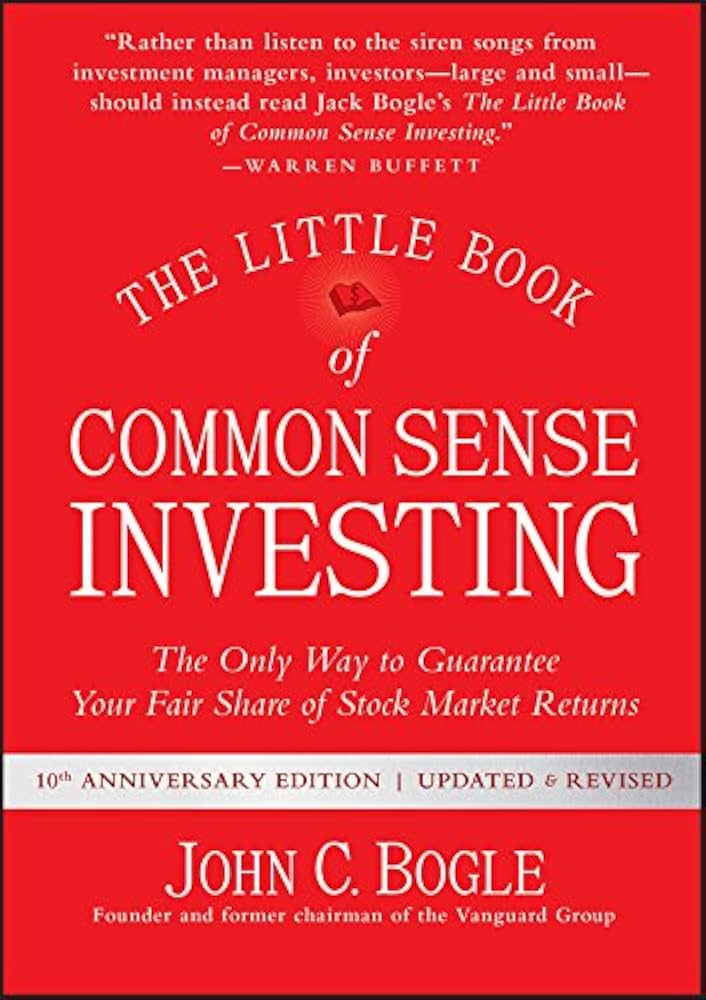
3. The Four Pillars of Investing – William J. Bernstein
Bernstein takes a wide-angle view of investing. He talks about the theory (why diversification matters), history (how markets behave), psychology, and the business side. While the book is broader than just mutual funds, the lessons on portfolio diversification, risk management, and long-term planning are directly applicable to mutual fund investing. He is sure about one thing: most people should just focus on low-cost funds and stop trying to outsmart the market. The mix of history and science makes this book eye-opening for anyone who wants to understand investing in a better way.
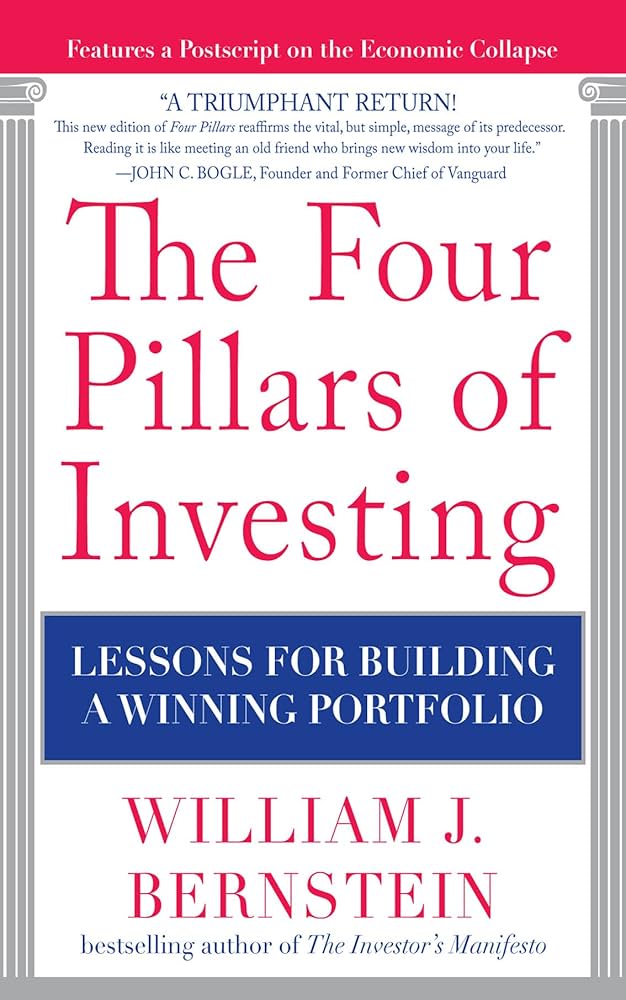
4. The Intelligent Investor – Benjamin Graham
This one is known as a classic for a reason. Benjamin Graham, Warren Buffett’s mentor, lays down multiple lessons about patience, discipline, and protecting yourself from risk. He explains the difference between being an “investor” and a “speculator”, a line that many people are not able to comprehend. Although Graham focuses on stocks, the principles of risk management, value assessment, and long-term thinking are highly relevant to mutual fund investing. The writing is a bit old-school, but the knowledge it carries is still relevant. If you read it, you will take away a whole new way of looking at money and risk.
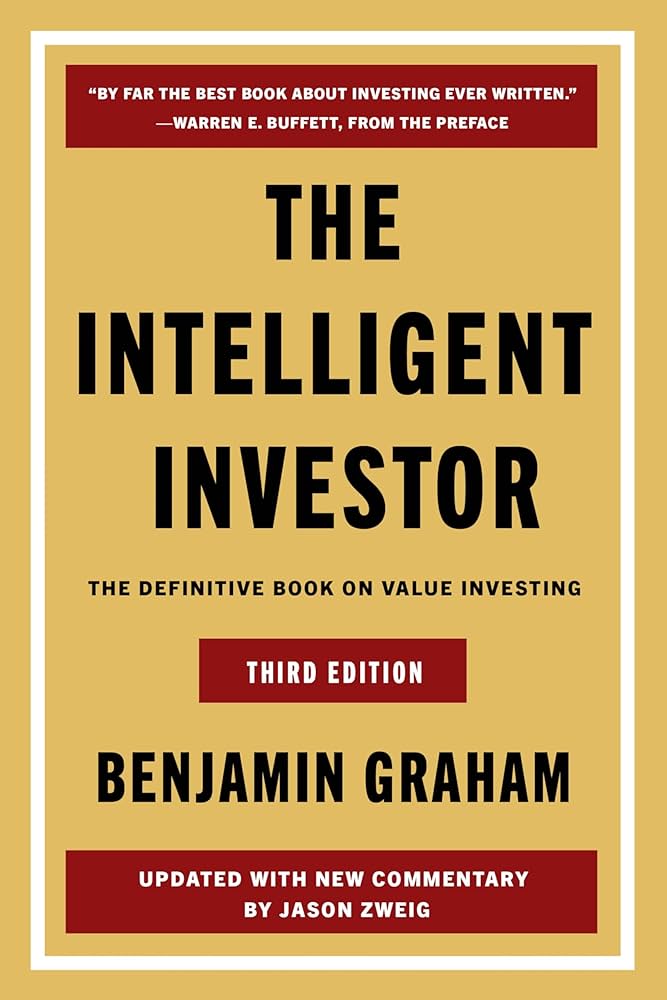
5. The Coffeehouse Investor – Bill Schultheis
This book feels like a chat with a wise friend over coffee. Schultheis argues that investing doesn’t need to be complicated, no need for fancy strategies, endless research, or sleepless nights. His approach is simple: build a balanced portfolio with index funds, leave it, and continue living your life. The language is simple, even humorous at times, making it perfect for beginners who feel overwhelmed by finance. It’s not about chasing every opportunity, but about finding peace of mind while still growing your wealth steadily.
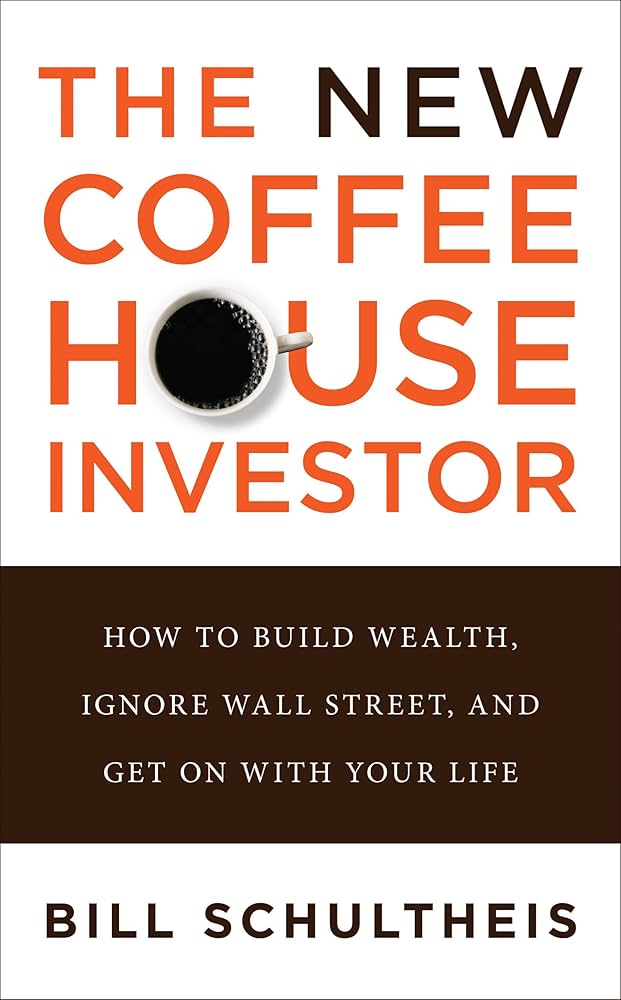
6. Indian Mutual Funds Handbook (5th Edition) – Sundar Sankaran
If you have ever wanted an easy, no-nonsense guide to how the Indian mutual fund industry works, this book can be of great help. Sundar Sankaran does a great job of breaking things down, whether it is the different types of funds, how they compare to other investment options, or how to invest across sectors. What makes it especially useful is how practical and India-focused it is, so you are not just getting theory but insights you can actually use. In many ways, it is a handbook for anyone who wants to understand mutual funds in the Indian context.
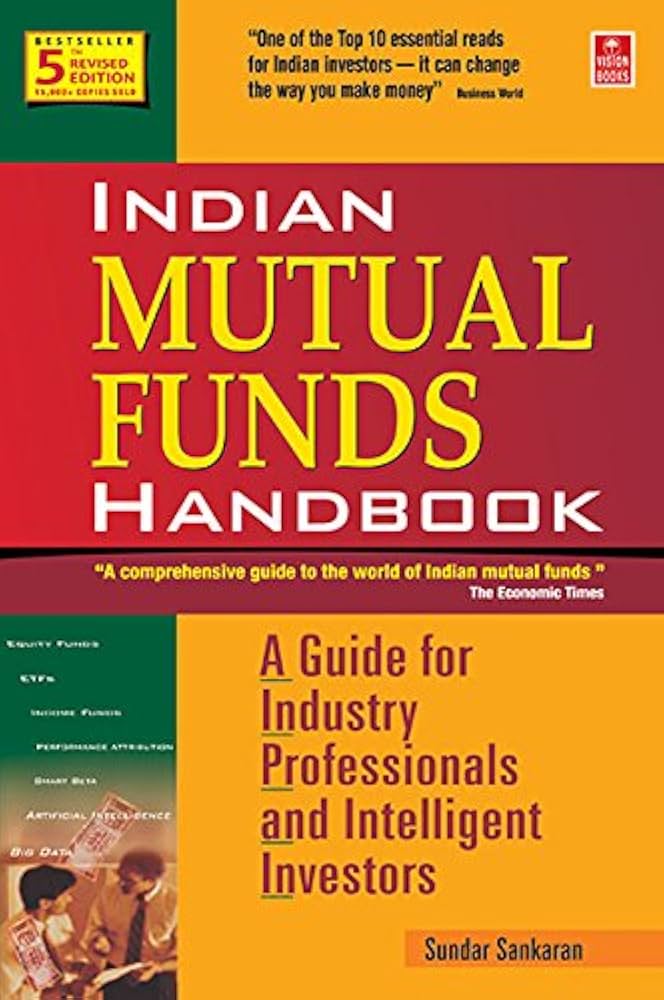
7. Mutual Funds – Ladder to Wealth Creation – Vivek K Negi
If you are starting your investing journey, this book is a perfect place to begin. Often rated as one of the best beginner-friendly guides on mutual funds, it explains the basics in a way that is simple and easy-to-follow. Vivek K Negi not only covers the fundamentals but also shows how mutual funds can become a smart tool for long-term wealth creation. For anyone new to the world of investing, this should be one of the first books on your reading list.

8. How to Make a Fortune Through Mutual Funds: Hunt with the Hounds – Ashu Dutt
This book shows how you can achieve extraordinary returns from mutual funds beyond the steady, slow gains most investors expect. Ashu Dutt explains that mutual funds deliver their best results in rising markets, and that conventional approaches like always investing through systematic investment plans or holding long-term may not make you rich. Instead, the book emphasizes timing your investments and strategically trading mutual funds to maximize profits. At the same time, Dutt keeps the language simple, making it easy for beginners to follow and addressing common myths, such as the fear of losing money during downturns or thinking mutual funds are only for long-term investing. This practical guide is perfect for investors who want to start investing with confidence while exploring the full potential of mutual funds.
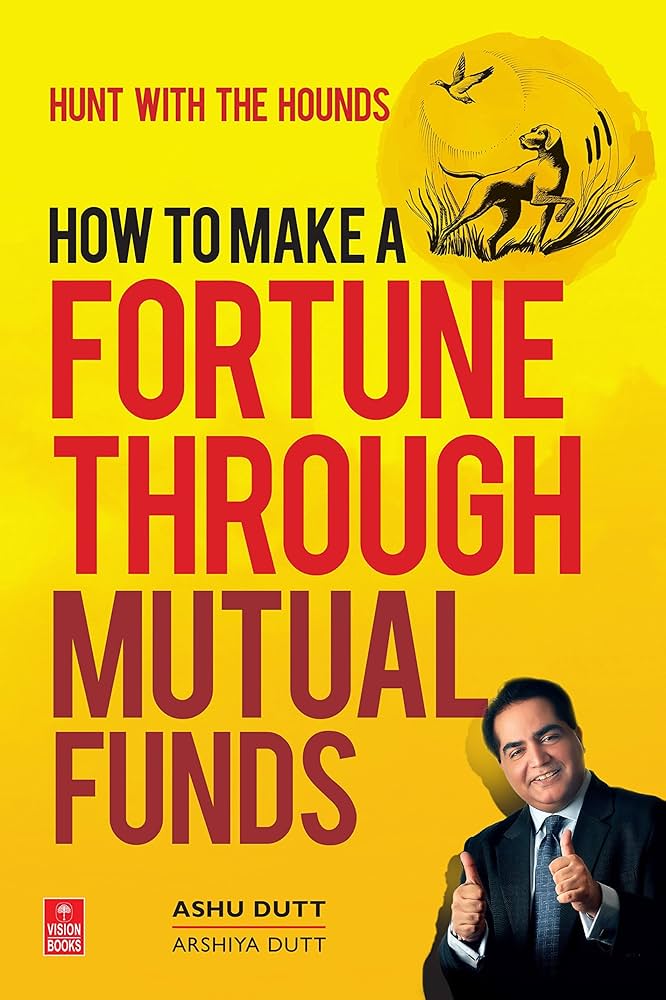
9. Mutual Funds For Dummies – Eric Tyson
If you have just started your financial journey and are feeling lost, this book is like having a friendly guide walk you through the world of mutual funds step by step. Eric Tyson is trying to show you how to choose funds that align with your investment goals and help you understand all the jargon. You do not need to be an expert; this book is designed for everyday investors who just want clear, practical advice.
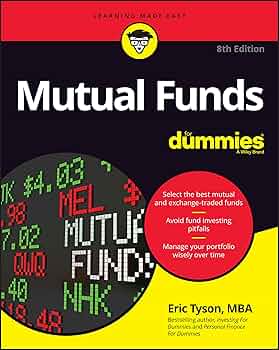
10. Mutual Funds Made Easy – Gerard W. Perritt
Gerard W. Perritt wrote this book with beginners in mind, making it a simple, step-by-step guide to understanding mutual funds. It covers the basics of how to get started, while also teaching you the importance of managing risk, diversifying your portfolio, and building a clear financial plan. Perritt also shares practical suggestions on how to stay disciplined as an investor and avoid common mistakes, making this book a reliable companion for anyone looking to grow wealth over time through mutual funds.

Read Also: Top 10 Books for Beginners in Trading & Investing
Conclusion
Mutual funds are often sold as “easy investment options,” but the truth is, they are only effective when a person uses them mindfully. It is important to have the right mindset, patience, and a consistent investment plan.
The books listed above are not just about mutual funds; they are about becoming a better investor overall. They will teach you to avoid the noise and trust the power of compounding. Instead of relying on short-term tips, consider reading one of these books as the knowledge you will gain will stay with you for the long term.
| S.NO. | Check Out These Interesting Posts You Might Enjoy! |
|---|---|
| 1 | 5 Must-Read Best Swing Trading Books for Trader |
| 2 | 10 Best Algorithmic Trading Books |
| 3 | Top 10 Option Trading Books in India |
| 4 | 10 Best Books for Stock Market Technical Analysis |
| 5 | 10 Best Chart Pattern Books for Traders |
Frequently Asked Questions (FAQs)
Are these books useful for Indian investors?
Yes, while most are written with U.S. markets in mind, the lessons, like patience, diversification, and low costs, apply everywhere.
Which book should I start with as a beginner?
Go for The Little Book of Common Sense Investing, it is simple and beginner-friendly.
Do these books talk about SIPs?
Some mention systematic investing strategies, which are almost the same idea.
Do I need to read all 10?
No. Even reading one or two will make a huge difference in how you see mutual funds.
Can I buy these books easily in India?
Yes, most are available on Amazon, Flipkart, or even in local bookstores.
Disclaimer
The securities, funds, and strategies discussed in this blog are provided for informational purposes only. They do not represent endorsements or recommendations. Investors should conduct their own research and seek professional advice before making any investment decisions.
Article History
Table of Contents
Toggle